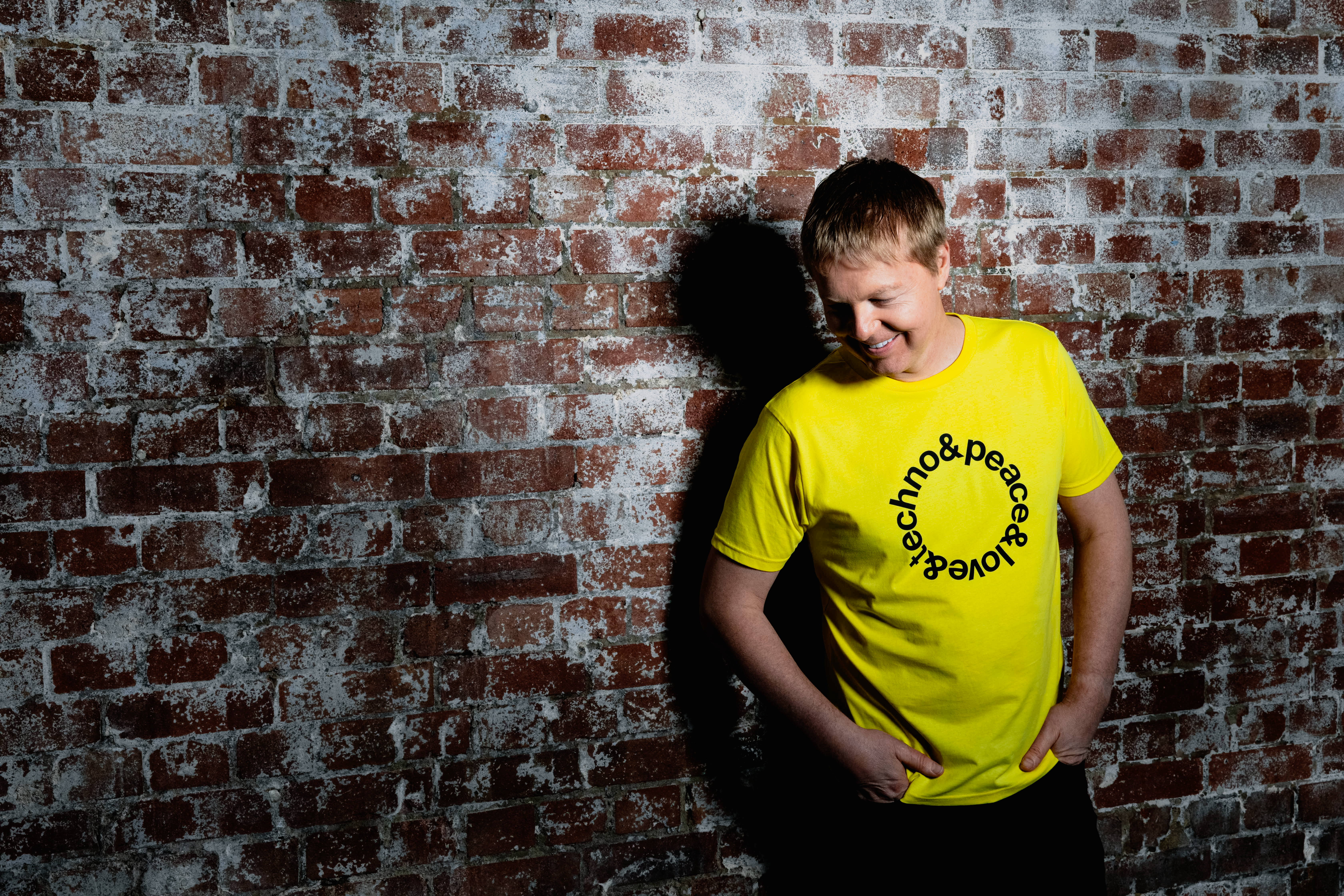Sevenn is a Champion of Hybrid Techno


Every artist has a story about how they got to the place they are now and what they had to go through just to get their foot in the door. Not all stories are created equal. The two brothers that make up Sevenn, Sean and Kevin, grew up in a religious community in Brazil called the Children of God. The two have detailed their experience living there at length, describing the positives about being surrounded by musically inclined people but also the negatives of living in what many might describe as a cult. Despite the challenges, they quickly discovered a passion for music which began with live instruments and playing in choral groups and bands with other members of the Children of God.
After discovering how to produce music on a computer, they began ghost-producing for bands until finding the joys of electronic music in 2013. After their pivot, they began to catch the attention of Brazilian Bass star Alok, who asked them to produce records for him. As their star began to rise, their father fell ill, and Sean ultimately stepped away from the project to focus on the family.
With Sean’s blessing, Kevin took the reins (today, Sean still assists on the production side) and dove headfirst into the world of becoming an internationally touring DJ. After grinding for a few years, the Sevenn project truly broke out in 2017 when they released “BOOM,” a collaboration with the legendary Tiësto.
With a big room hit under his belt, Kevin traveled to Ibiza, where he had his first extended experience with underground music. After seeing artists like Solomun and Boris Brejcha play totally new styles, Kevin quickly realized the direction he hoped to take the Sevenn project in was vastly different than where it was going. He worked tirelessly to create a new sound, his own unique brand called hybrid techno.


The newest release in the hybrid techno era for Sevenn is out now, titled “Champagne & Pizza.” Often when DJs try to crossover into the world of techno, the results are flat and uninspired, leaving true techno heads scratching their fedora-laden heads. Sevenn ensures that is not the case. The track packs all the energy of a dark warehouse with a rigorous bassline that’s effortlessly cool and not trying to be a big room banger. A heavy build-up and synth-laden breakdown drops into a more minimal section that alludes to the influences from the world of melodic techno. If this is just the beginning, we can’t wait to see where Sevenn goes from here.
Follow Sevenn on Facebook | Twitter | Instagram | TikTok | SoundCloud
Your artistic journey has been a long and complicated one. Growing up in a religious community, it’s hard to imagine how you would discover electronic music. At the start, you were focused on producing Christian rock and folk music. Can you tell us about those experiences and why you decided to pursue music production?
Growing up in the Children of God, I was constantly surrounded by music and musicians and had access to the studios they used to produce their albums and videos. As early as five, I was there recording vocals for kid’s songs, watching and soaking in what I could during production processes. We sang in choral groups, busked on the streets, and played in some of their traveling bands.
We were home-schooled and pretty isolated from the world, living on a large farm-like property on the outskirts of Rio with zero access to the internet. No television either, so we were either outdoors or tinkering around in the studios. This had an important influence on the direction things took since music became all we knew. Ultimately I think music chooses us and not the other way around, and I just feel lucky to have had such early exposure to it with some talented artists (like Jeremy Spencer, the original guitarist for Fleetwood Mack). I’m also pretty shy and was an awkward teenager, so music was definitely a way to express myself more fully.
But yes, I knew nothing about electronic music. It just so happened that neighboring properties were remote enough that they were ideal for hosting raves. I was too young, but that’s how Sean (founding Sevenn Brauer brother) snuck into his first event and got totally hooked.
The decision to start ghost-producing came in the early 2000s. The length of time you have put into honing your craft is honorable and exemplary of why you are in the place you are today. Do you have a specific memory of discovering electronic music or a time in your life when you decided to make the switch to that area? At the time, was the idea of DJing even on your mind, or was that not an option in your life situation?
I never imagined DJing as a career and at first hated electronic music, mainly because I was into more technical stuff like progressive metal and orchestral music. Also, I’d never been to an actual party or nightclub and didn’t understand the function behind the music. It just sounded repetitive and superficial. But in 2013, Sean showed me “Spectrum” by Zedd, and it completely revolutionized my thinking around electronic music production.
After a decade of struggling to make it in this world, you created “Colors of the Rainbow,” featuring your sister Kathy on vocals, which kicks off everything and follow this up with “BYOB” after getting introduced to Alok. Unfortunately, this was surely a time of mixed emotions with the passing of your father. Did you have a sense at the time that you were breaking through and could pursue this as a career, or was it so intense emotionally that the moment slipped by?
I was teaching English for peanuts and had even started a law degree (my very worst idea). I learned a lot from the music projects I kept up on the side, but they weren’t quite going anywhere (read: massive flops) and were financially pretty unrewarding. So the whirlwind period of my dad’s passing with all the family stress and drama that entails, followed by Sean inviting me to take a leap of faith to form Sevenn together and tour the world, I just knew it was the moment. I had to go all in. Death is a powerful wake-up call to go after your biggest dreams.
It all was (and still is) so intense I don’t think I’ve processed it yet. Everything happened so fast, and the momentum just kept snowballing.
I went from basically never leaving the house, living in an apocalyptic hippie commune, and being completely ignorant of what was going on in the world outside the compound walls to exploring the four corners of the earth. It was surreal facing my first crowd at Tomorrowland with a rudimentary (read: zero) understanding of how CDJs even worked. The whole experience has been an incredible blessing. It feels very good to be alive, and I hope to share the same energy that I feel, that life can be a wild ride if you just hop on, work hard, and trust.


You and your brother went on to essentially create this new style of music that was dubbed “Brazilian Bass” by Alok. It feels like the last decade has been the strongest yet for electronic music in Brazil. Stars seem to continuously come out of Brazil, and it’s becoming increasingly desirable for American DJs to play there. How have you seen the electronic scene evolve and develop throughout your lives, and do you think it’s in a better place now than when you started?
Oh absolutely. Dance music is bigger and better than ever, and Brazil has definitely proven fertile grounds for it to continue growing and developing. They’ve really developed a mature taste for it and are a demanding audience, which forces us, artists, to focus and put on a good show. Some factors are probably the less rigid regulations around these events compared to other countries and the space and climate for hosting them. The scene there is pretty sophisticated at this point–and it fits right in with the Brazilian culture of dance and song as the social glue. Also, from a producer’s perspective, sound design and tools have evolved exponentially, and there are endless creative possibilities now. I take my entire studio with me everywhere I go.
After over two decades of experience producing music, it is clear you are eager to try new styles. That being said, I’m curious if you have any tips or advice for new producers just trying to learn their way around Ableton? Do you have any pieces of hardware or software plug-ins that you often rely on?
So back when we were learning how to make music, there was no YouTube, just a bunch of locker room producer talks about different techniques and plug-ins. These days, YouTube literally has all your answers. I check YouTube every day for techniques and tutorials about things I haven’t learned yet. There’s always something to learn, so it’s key to stay hungry and curious. You need a solid understanding of the rules before you can break them to create something original.
You had another breakthrough moment with “BOOM,” a monster track that Tiësto co-signed and Alok seemingly tried to push his way into. What was the sense of relief like getting someone like Tiësto on your side and later finally understanding you needed to go and do things on your own?
Tiësto is a generous soul who has helped propel forward so many emerging artists. We’re eternally grateful for his support and his production on the track. He was also instrumental in getting us the kind of exposure needed for a strong following, which is essential if you’re going to quit your day job (which we had already). It was kind of a defining moment for me in that I started to understand Sevenn’s true potential to become a world-class act that was also financially feasible. Remember, kids, they call it the music business for a reason. Also, contracts are good.
It feels like things are looking up for the Sevenn project. You have created another new sound, Hybrid Techno. Tell us about the desire to dive into the underground world of electronic music.
I first fell in love with the underground/techno scene in 2017 in Ibiza. It literally changed my life. I remember realizing how incredible this music was and how there were endless possibilities with it. With Hybrid Techno, I want to fuse all of those sounds into a new, over-the-top package that pulls no punches. Some of the most profound experiences I’ve had were watching legends like Solomun, Tale of Us, Adriatique, and Boris Brejcha, feeling totally connected to everyone else in the crowd with me, and knowing music was the unifying force behind it. I just want to give that back.
You’re working on building a class for music production with 789ten. What prompted you to work on this project?
Well, they say the best way to learn is to teach, articulating what you’ve learned but maybe never tried putting it into words before. So in giving some of my techniques and tricks away, I know that, in turn, I’ll learn a lot in the process from this incredible community of not only bedroom producers (such as myself) but professionals working from full-blown studios. But really, it’s just my favorite topic to yap away about until I’m hoarse and my family can’t take it anymore. Plus, we’re going to shoot it at the Brazilian mecca of music, Mosh Studios in São Paulo. Can’t wait to hang out with those guys again–living legends and true gurus of sound production. Just hanging out with them and talking shop is probably what some people go skydiving for.







































